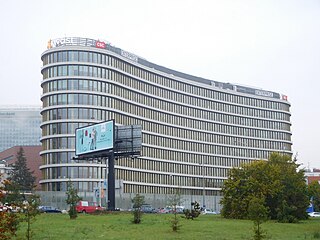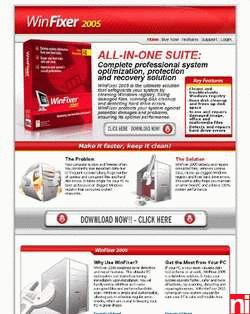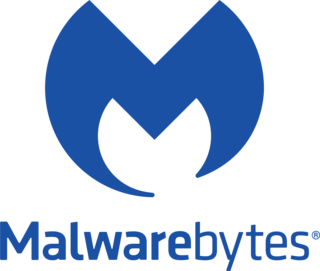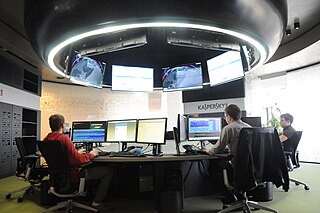Malware is any software intentionally designed to cause disruption to a computer, server, client, or computer network, leak private information, gain unauthorized access to information or systems, deprive access to information, or which unknowingly interferes with the user's computer security and privacy. Researchers tend to classify malware into one or more sub-types.

Antivirus software, also known as anti-malware, is a computer program used to prevent, detect, and remove malware.
The EICAR Anti-Virus Test File or EICAR test file is a computer file that was developed by the European Institute for Computer Antivirus Research (EICAR) and Computer Antivirus Research Organization to test the response of computer antivirus programs. Instead of using real malware, which could cause real damage, this test file allows people to test anti-virus software without having to use a real computer virus.

The European Institute for Computer Antivirus Research (EICAR) was founded in 1991 as an organization aiming to further antivirus research and improving development of antivirus software. Recently EICAR has furthered its scope to include the research of malicious software (malware) other than computer viruses and extended work on other information security topics like content security, Wireless LAN security, RFID and information security awareness. EICAR also organizes international security conferences most years, as well as a number of working groups or 'task forces'.

Scareware is a form of malware which uses social engineering to cause shock, anxiety, or the perception of a threat in order to manipulate users into buying unwanted software. Scareware is part of a class of malicious software that includes rogue security software, ransomware and other scam software that tricks users into believing their computer is infected with a virus, then suggests that they download and pay for fake antivirus software to remove it. Usually the virus is fictional and the software is non-functional or malware itself. According to the Anti-Phishing Working Group, the number of scareware packages in circulation rose from 2,850 to 9,287 in the second half of 2008. In the first half of 2009, the APWG identified a 585% increase in scareware programs.

AVG AntiVirus is a line of antivirus software developed by AVG Technologies, a subsidiary of Avast, a part of Gen Digital. It is available for Windows, macOS and Android.
Norton AntiVirus is an anti-virus or anti-malware software product founded by Peter Norton, developed and distributed by Symantec since 1990 as part of its Norton family of computer security products. It uses signatures and heuristics to identify viruses. Other features included in it are e-mail spam filtering and phishing protection.

Avast Software s.r.o. is a Czech multinational cybersecurity software company headquartered in Prague, Czech Republic, that researches and develops computer security software, machine learning, and artificial intelligence. Avast had more than 435 million monthly active users and the second largest market share among anti-malware application vendors worldwide as of April 2020. As of 2018, the company had approximately 1,700 employees across its 25 offices worldwide. In July 2021, NortonLifeLock, an American cybersecurity company, announced that it was in talks to merge with Avast Software. In August 2021, Avast's board of directors agreed to an offer of US$8 billion.

WinFixer was a family of scareware rogue security programs developed by Winsoftware which claimed to repair computer system problems on Microsoft Windows computers if a user purchased the full version of the software. The software was mainly installed without the user's consent. McAfee claimed that "the primary function of the free version appears to be to alarm the user into paying for registration, at least partially based on false or erroneous detections." The program prompted the user to purchase a paid copy of the program.
FRISK Software International was an Icelandic software company that developed F-Prot antivirus and F-Prot AVES antivirus and anti-spam service. The company was founded in 1993. It was acquired by Cyren in 2012.

McAfee VirusScan is an antivirus software created and maintained by McAfee. Originally marketed as a standalone product, it has been bundled with McAfee LiveSafe, McAfee AntiVirus Plus, McAfee Total Protection and McAfee Gamer Security since 2010. McAfee LiveSafe is antivirus protection that defends against viruses, online threats, and ransomware with online and offline protection integrates antivirus, firewall and anti-spyware/anti-ransomware capabilities.
In 2006, British telecom company BSkyB started offering Sky Broadband customers a branded version of VirusScan for free upon broadband modem installation.
Rogue security software is a form of malicious software and internet fraud that misleads users into believing there is a virus on their computer and aims to convince them to pay for a fake malware removal tool that actually installs malware on their computer. It is a form of scareware that manipulates users through fear, and a form of ransomware. Rogue security software has been a serious security threat in desktop computing since 2008. An early example that gained infamy was SpySheriff and its clones, such as Nava Shield.

AVG Technologies B.V. is a brand of cybersecurity, privacy, performance and utility software applications for desktop computers and mobile devices developed by Avast, a part of Gen Digital. AVG was a cybersecurity software company founded in 1991 and it merged into Avast following an acquisition in 2017. It typically offers freeware, earning revenues from advertisers and from users that upgrade to paid versions for access to more features.

A computer virus is a type of malware that, when executed, replicates itself by modifying other computer programs and inserting its own code into those programs. If this replication succeeds, the affected areas are then said to be "infected" with a computer virus, a metaphor derived from biological viruses.

Malwarebytes is anti-malware software for Microsoft Windows, macOS, ChromeOS, Android, and iOS that finds and removes malware. Made by Malwarebytes Corporation, it was first released in January 2006. This is available in a free version, which scans for and removes malware when started manually, and a paid version, which additionally provides scheduled scans, real-time protection and a flash-memory scanner.

Kaspersky Lab is a Russian multinational cybersecurity and anti-virus provider headquartered in Moscow, Russia, and operated by a holding company in the United Kingdom. It was founded in 1997 by Eugene Kaspersky, Natalya Kaspersky and Alexey De-Monderik. Kaspersky Lab develops and sells antivirus, internet security, password management, endpoint security, and other cybersecurity products and services.
Immunet was a free, cloud-based, community-driven antivirus application, using the ClamAV and its own engine. The software is complementary with existing antivirus software. In January 2011 Immunet was acquired by Sourcefire.
MS Antivirus is a scareware rogue anti-virus which purports to remove virus infections found on a computer running Microsoft Windows. It attempts to scam the user into purchasing a "full version" of the software. The company and the individuals behind Bakasoftware operated under other different 'company' names, including Innovagest2000, Innovative Marketing Ukraine, Pandora Software, LocusSoftware, etc.
Avira Operations GmbH & Co. KG is a German multinational computer security software company mainly known for its Avira Free Security antivirus software. Although founded in 2006, the Avira antivirus application has been under active development since 1986 through its predecessor company H+BEDV Datentechnik GmbH. Since 2021, Avira has been owned by American software company NortonLifeLock, which also operates Norton, Avast and AVG. It was previously owned by investment firm Investcorp.

Norman Safeground AS develops and sells data security software such as anti-virus, anti-spam, anti-spyware and backup with local support. The company headquarters is in Oslo, Norway. Norman Safeground has a global partner-network, and the main market is Europe.










